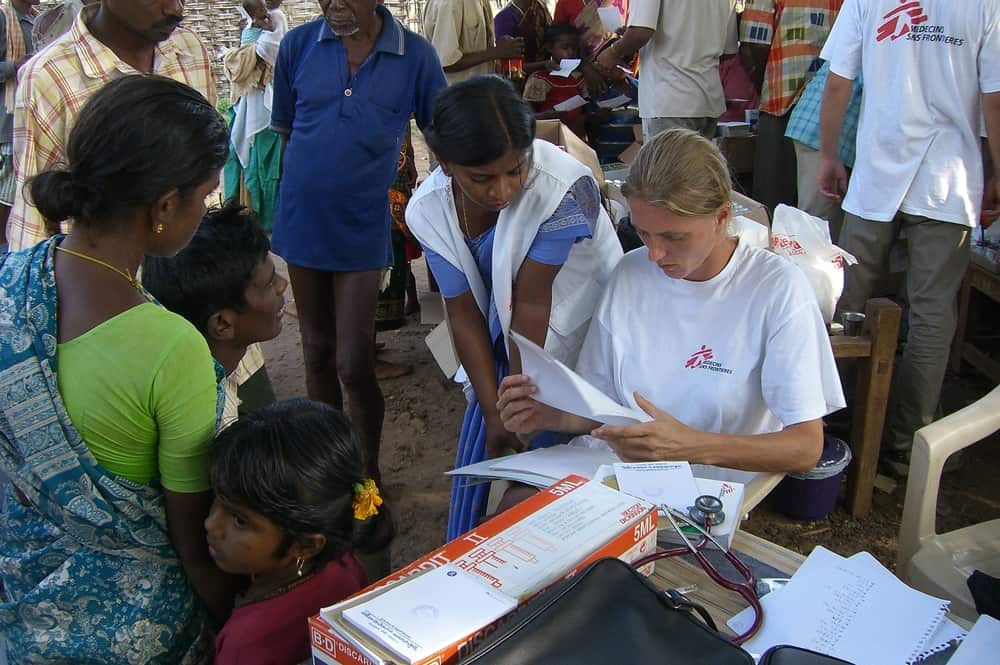Doctors Without Borders / Médecins Sans Frontières (MSF) is an independent international medical humanitarian organisation that delivers emergency aid in more than 65 countries to people affected by armed conflict, epidemics, natural or man-made disasters or exclusion from healthcare.
 MSF mobile clinic is now offering primary health care, monitoring for outbreaks of disease, introducing emergency preparedness, helping the government set up health centres in Chattisgarh camps. © Catherine Vincent
MSF mobile clinic is now offering primary health care, monitoring for outbreaks of disease, introducing emergency preparedness, helping the government set up health centres in Chattisgarh camps. © Catherine Vincent
In emergencies and their aftermath, MSF rehabilitates and runs hospitals and clinics, performs surgery, battles epidemics, carries out vaccination campaigns, operates feeding centres for malnourished children and offers mental healthcare.
When needed, MSF also constructs wells, dispenses clean drinking water and provides shelter materials, such as blankets and plastic sheeting.
Worldwide movement
©Armelle Loiseau/MSF
MSF was founded in Paris, France in 1971. Its principles are described in the organisation’s founding charter. It is a non-profit, self-governed organisation.
Today, MSF is a worldwide movement of 23 associations, bound together as MSF International, based in Switzerland.
Thousands of health professionals, logistical and administrative staff – most of whom are hired locally – work on programmesin some 70 countries worldwide.
Committed to independent humanitarian action
As an independent and self-directed organisation, MSF’s actions are guided by medical ethics and the principles of neutrality and impartiality. This means that MSF offers assistance to people based only on need and irrespective of race, religion, gender or political affiliation.
MSF strives to ensure that we have the power to freely evaluate medical needs, to access populations without restriction and to directly control the aid we provide giving priority to those in most grave danger. MSF does not take sides in armed conflict and insists on unhindered access to patients.
Witness
When MSF is witness to massive and neglected acts of violence against individuals and groups, we may speak out publicly based on eyewitness accounts, medical data and experience.
The work of MSF is carried out by over 30,000 health professionals, logistics experts and administrative staff who run projects in approximately 65 countries around the world.
Awards
Numerous awards have been given to MSF since its creation in recognition of the organisation’s humanitarian work. Its awards include:
2012 J. William Fulbright Prize for International Understanding
2013 World Community Excellence Award
 © MSF
© MSF
The ‘Indira Gandhi Prize for Peace, Disarmament and Development’ in 1996
The ‘Nansen Medal’, United Nations High Commissioner for Refugees in 1993
The ‘King Hussein Award’
Indian Medical Association Award






